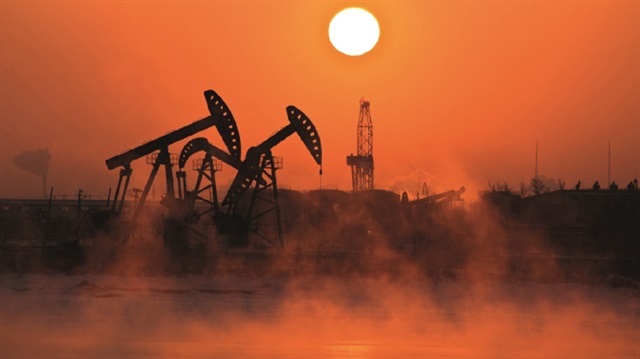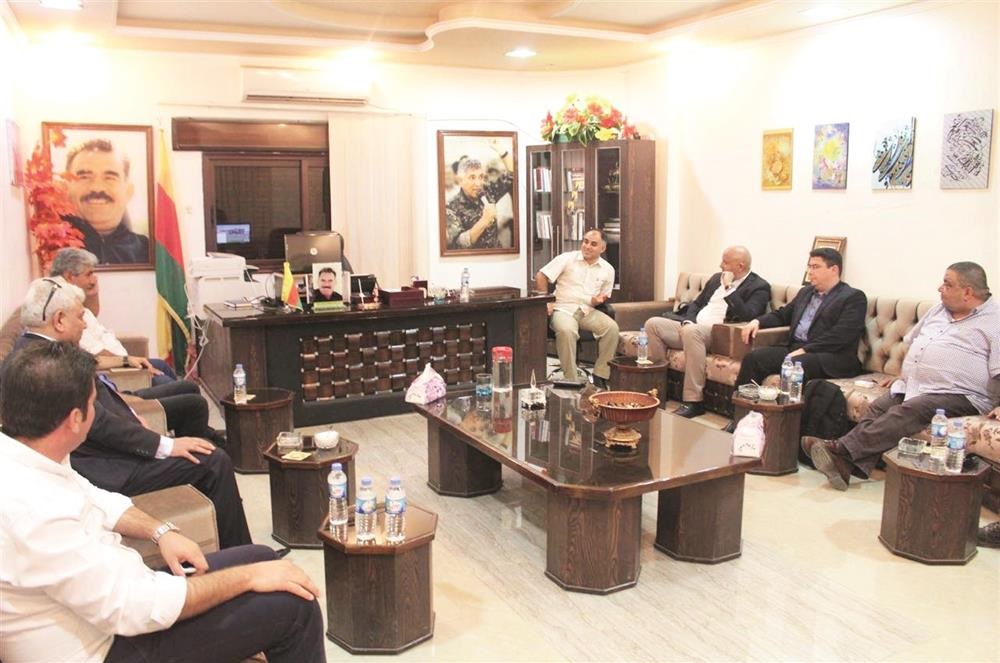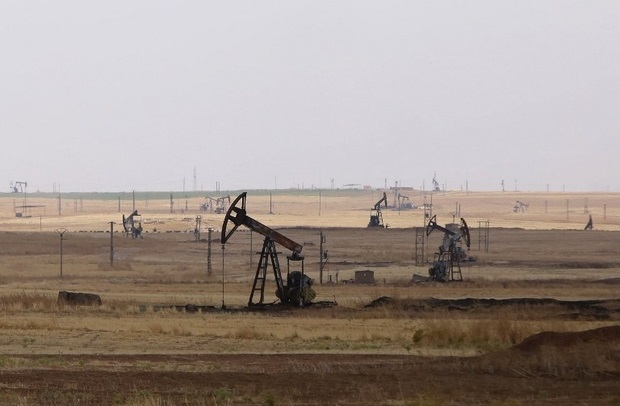
Syria, located in a critical geographical position in terms of the Middle East's oil, boasts a 1,300 kilometer-long oil pipeline as well as rich underground resources. This richness has tempted the west to divide and sell Syria’s oil and natural gas resources.
According to a report published by the Syrian Petroleum Ministry in 2011, when the war started, Syria produced 34,828,000 barrels of crude oil in the first quarter of 2011 and reached 387,000 barrels per day during the same period.
The report showing that there are 2.5 billion barrels of oil reserves in Syria is no longer accessible on the internet. Syria's official news agency SANA covered the report on May 5, 2011, and pointed out that the Ministry of Oil and Mineral Resources of Syria, which compiled the report, has removed it from all English and Arabic sources.
The reports of energy experts confirm the official figures for the resources in Syria. In 2011, nearly 400,000 oil-producing countries in the world produced more than 140 million barrels a year.
Syria, which sells its oil to European Union countries, exported about 2.7 million tons of crude oil to the EU in 2011.
Despite the fact that the rich oil resources of Syria were known, there was no breakthrough in the country until the 1950s. In 1955, the US and the Germans extracted oil from Qamishli, in northeastern Syria.
In 1962, with the help of the Soviets, it was in Rmeilan that the oil was extracted by the state company in Syria. By 1993, the average oil production in the country reached 570,000 barrels per day.
The oil exploration, extraction and operation activities in Syria were carried out by the Syrian Petrol Company (SPC). According to the 1991 data, companies from the USA, UK, Canada, Belgium, France, Germany, Spain, Japan and the Scandinavian countries joined the oil production in Syria along with the Damascus regime.
With the beginning of the civil war in 2011, the amount of crude oil produced in Syria took a hit.
Since the end of 2012, the Daesh terrorist organization dominated the oil fields in Syria and Iraq, and then sold the oil that it withdrew in cooperation with the Damascus regime.
Daesh, which is the most important structure that the US has used to design the region, came to the scene in the following years in order to further legitimize the PKK and deliver all of northern Syria to the terrorist organization.
The Syrian offshoot of the PKK, the PYD seized many settlements along the corridor surrounding Turkey from the south under the pretext of 'rescuing the territories under the control of Daesh.’ Therefore, the oil and gas regions that were passed from the regime to Daesh have finally come under the control of the PKK.

Egypt, the United Arab Emirates and Saudi Arabia, some tribal leaders and high-ranking PKK/PYD officials from Syria also participated in the meeting.
The future of the Al-Hasakah, Raqqah and Deir ez-Zor regions, which hold 95 percent of Syrian oil and gas potential, and radical decisions about the extraction, processing and marketing of Syria’s underground resources were discussed.
At the meeting attended by US Colonel John Dorrian, it was decided to give the PKK/PYD shares in Syria’s oil and petrol resources.
The terrorist organization PYD/PKK, which occupies 23 percent of the Syrian territory, seized the largest three reservoirs of the country with the military support of the US. The dams on the Euphrates River have the capacity to provide the majority of the electricity and irrigation needs of the country.
According to map area measurements, the PYD/PKK occupies approximately 39,500 square kilometers of Syria, with an area of approximately 185,000 square kilometers.
The terrorist organization controls Tashrin in the east of Aleppo, Tabka and Baas in the western part of Raqqah. The large farmland stretching from Aleppo's east to the Iraqi border can be irrigated by the reserves of these three reservoirs.
Sixty percent of the agricultural land in the country, equivalent to 30,000 square kilometers, is located in the region under the control of the PYD/PKK.

The terrorist organization also dominates 9.4 percent of irrigable agricultural land in Syria. Eighty percent of the area is watered by the dams under the control of the PYD/PKK.
The three dams controlled by the terrorist organization occupy have the capacity to provide about 70 percent of Syria's electricity needs. The PYD/PKK controls territories along Turkey’s border with Syria, including Haseke in the east, Manbij and Afrin.
The terrorist organization occupies about 65 percent of the Syrian-Turkish border.
The Tişrin dam, captured by the PYD/PKK in December 2015 from Daesh, has the capacity to produce 630 megawatts (MW) annually.
The dam, which has a storage area of about 40 meters long, offers watering facilities to Manbij and Kobani.
In the west of Raqqah, the dam from the town of Tabka was taken over by the PYD/PKK on May 13. The Tabka dam has a large energy and irrigation infrastructure with an annual production of 824 MW and a 60-meter accumulation basin called the al-Assad Lake.
The al-Assad lake, which has an area of 630 square kilometers, is Syria's largest water reserve. The Tabka dam is capable of holding 10 square kilometers of water capacity, as well as providing drinking water for the Aleppo city center, Manbij and Kobani all the way to the border of Iraq.
Another dam, which was captured by the PYD/PKK in the context of the Raqqah operation conducted with US support, is the Baas dam in the northern part of Tabka. The dam, which has been under the terrorist organization’s control since June 4, has the capacity to produce 75 MW of energy annually.


















